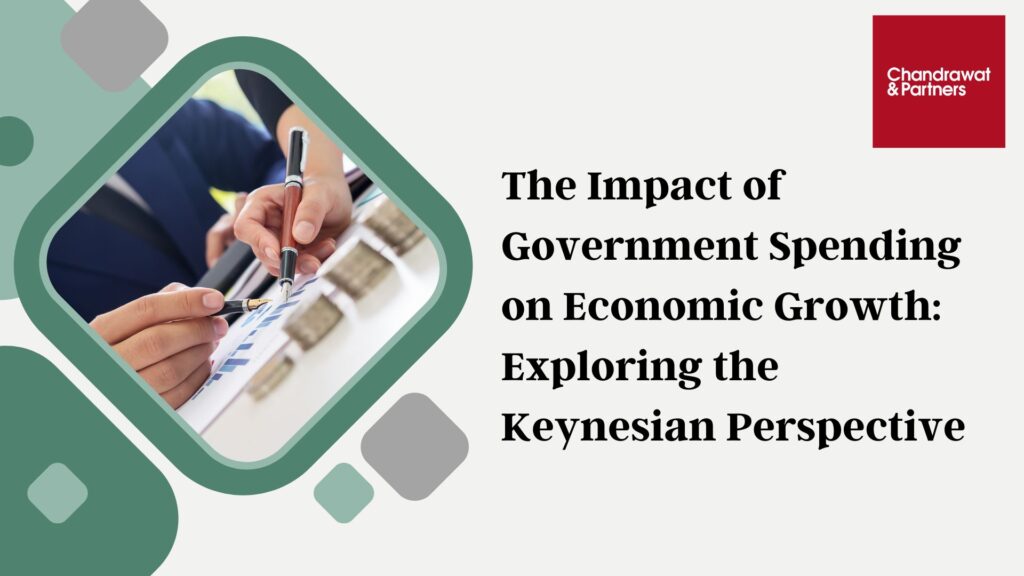Edit Content
Edit Content
Edit Content

In the realm of economics, the Keynesian perspective has long been recognized for its insights into the relationship between government spending and economic growth. At its core, Keynesian economics focuses on the principles of aggregate demand and fiscal policy, providing a framework to understand how government expenditure can influence economic activity.
As economies worldwide seek to revitalize and drive growth, governments play a crucial role in injecting funds into areas such as infrastructure development, job creation, and social programs. Through strategic fiscal policy tools like taxation and borrowing, governments aim to strike a balance between stimulating economic expansion and maintaining stability. While critics may raise concerns about deficits and inflation, careful planning and monitoring can mitigate these risks.
Fiscal policy, which involves government spending and taxation, plays a crucial role in managing the economy. From a Keynesian perspective, government spending can act as a powerful tool to stimulate economic growth. By increasing its expenditure, the government can boost aggregate demand and spur economic activity. This is particularly relevant during periods of economic downturns when private sector spending may be insufficient to drive recovery. Government spending injects money into the economy, creating a multiplier effect. As individuals and businesses receive income from government contracts or public sector employment, they, in turn, spend that money on goods and services, further stimulating economic activity.
Infrastructure investments are a key component of government spending and have a significant impact on economic growth. Governments allocate funds for building and upgrading infrastructure such as transportation networks, energy systems, and public facilities. These investments not only create jobs during the construction phase but also enhance productivity and efficiency in the long run.
The well-developed infrastructure reduces transportation costs, facilitates trade, and attracts businesses and investments. This, in turn, leads to increased economic activity, job creation, and higher living standards. For example, a well-connected transportation system can improve market access for businesses, while reliable energy infrastructure supports industrial growth. Infrastructure investments have the potential to boost economic growth and enhance the competitiveness of a country.
Government spending can directly create employment opportunities through public sector job creation, particularly during economic downturns. By increasing public sector employment, governments provide stability and support to individuals while stimulating demand for goods and services. Public sector jobs span various sectors, including education, healthcare, infrastructure development, and public administration. Investments in education can lead to the hiring of more teachers, improving educational quality and accessibility. Similarly, healthcare investments drive the recruitment of medical professionals, enhancing healthcare services.
Government programs addressing social issues and sustainable development also generate employment, such as initiatives in renewable energy, waste management, and construction. By strategically allocating funds for job creation and societal needs, governments stimulate economic activity, foster social welfare, and promote sustainable development. Government spending’s impact on employment extends beyond income provision, contributing to individuals’ well-being and community development while driving economic growth.
While government spending can have positive effects on economic growth, it is essential to consider fiscal policy considerations. Excessive government spending can lead to fiscal imbalances, increased public debt, and inflationary pressures. Governments must strike a balance between stimulating economic growth and maintaining fiscal sustainability.
Implementing targeted investments and monitoring the effectiveness of expenditure programs are key considerations for policymakers. Sustainable fiscal policies ensure the long-term benefits of government spending while mitigating potential risks.
In conclusion, the Keynesian perspective sheds light on the impact of government spending on economic growth. By utilizing fiscal policy, governments can stimulate aggregate demand, drive infrastructure investments, and create employment opportunities. These measures contribute to economic development and can be particularly valuable during economic downturns. However, careful consideration of fiscal policy is essential to maintain fiscal sustainability.
By adopting a balanced approach to government spending, policymakers can leverage the benefits of public expenditure while managing potential risks. Understanding the role of government spending in economic growth provides insights into effective policy measures for sustainable and inclusive development.
For more information or queries, please email us at
[email protected]

Managing Partner
Copyright © Chandrawat & Partners. All Rights Reserved.
Copyright © Chandrawat & Partners. All Rights Reserved.

Chandrawat & Partners stands as a dynamic and rapidly expanding full-service firm, specializing in the delivery of exceptional professional and corporate services to a diverse clientele, both foreign and local. We proudly represent companies and individuals across a wide spectrum of sectors through distinct entities established in various countries worldwide.
ASIA
AFRICA
EUROPE
NORTH AMERICA
SOUTH AMERICA
OCEANIA
Chandrawat & Partners uses cookies to run our site and improve its usability.
By using our site you agree to our use of Cookies.